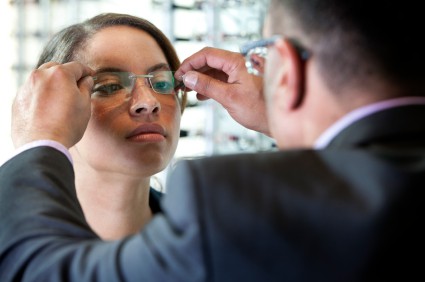If you’re severely nearsighted, you’re not alone. In fact, you’re one of 10 million adults in the U.S. with the condition. Myopia (or nearsightedness) has risen from 25% in the early 1970’s to more than 40% by 2000.
Myopia is caused by elongation of the eyeball. The condition typically begins in childhood and you may have a higher risk if your parents are nearsighted.
If you are nearsighted, your elongated eyeball causes light rays to focus at a point in front of the retina, rather than directly on its surface. Nearsightedness also can be caused by the cornea and/or lens being too curved for the length of the eyeball. To correct your vision, myopia requires glasses or contact lenses or laser surgery.
In most cases, nearsightedness stabilizes in early adulthood but sometimes it continues to progress with age. When the eye continues to elongate, the condition is called progressive high myopia and can lead to a dangerous complication.
People with progressive high myopia are at greater risk of myopic choroidal neovascularization that may cause long-term permanent vision loss. For reasons that are currently unknown, women are at a higher risk of experiencing this condition, though the disease is rare affecting over 41,000 people in the U.S.
A new study was conducted recently by investigators from the American Academy of Ophthalmology, Genentech, the National Institutes of Health and UC Davis. Lead study author Jeffrey Willis, M.D., Ph.D. says:
“Prior to this study, we really had no idea how many people had myopic choroidal neovascularization, which can be devastating. I think the findings emphasize the growing issue of nearsightedness and the burden it creates in terms of medical complications that cannot be fixed with just glasses or contacts.”
As with most eye disease, regular eye exams are your best defense against vision loss from myopic choroidal neovascularization. Annual visits to your ophthalmologist can lead to early intervention and diagnosis.
Source: https://www.aao.org/newsroom/news-releases/detail/ten-million-severely-nearsighted-united-states

